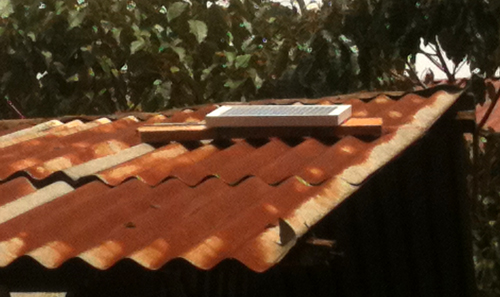One of your correspondent’s favourite pastimes at the end of a furiously scribbling day is to relax by listening to podcasts from around the world. Whether it be catching up with the latest world news or getting the dirt on the latest papal conspiracy/financial meltdown/political affray, you can find me in my comfy armchair during the late afternoon plugged in to the world. Never a dull moment I always say! Of course podcasts are also a great research tool and solar energy radio shows are always at the top of my subscription list.
This is by way of introduction this week to a great new BBC podcast to which I recently subscribed called Costing the Earth. Hosted by presenter Tom Heap in the usual superb BBC accent and style, this week’s program was all about electrifying Africa (specifically Kenya) — using solar power.
Now here in the West we probably view solar energy as a form of clean power that has a number of advantages: reliable, long-lasting, sustainable, pollution free, quiet (also pencil in the fact that solar is rapidly becoming cost effective compared to fossil fuel) as well as having the potential to save the planet. However in a country such as Kenya, solar power is all these factors but, on a smaller scale, may deliver a great deal more.
As the program explained, the more rural areas of Kenya which are off grid, tend to use dirty, unhealthy kerosene lamps to light their homes. An estimated one hundred million of these lamps exist in the country which pollute the atmosphere, are dangerous to health and are relatively expensive for the people who use them. Using them in a room is the equivalent to smoking two packets of cigarettes the presenter claimed. They also cost as much as 15 percent of annual salaries in some parts of the country according to the program.
Enter solar power.
Micro solar lamps, small desktop style lights, have revolutionised energy where they have been introduced. The cheap lamps not only have no detrimental effects on the users’ health but also allow Kenyan students to study later in the evening (some kids may consider this a disadvantage though). Portable solar-powered lights have also improved personal safety for people walking in dark streets.
So there you go, a micro solar power revolution in Kenya which will not only bring clean energy but also increase safety, improve childrens’ chance of a good education and even save lives. I highly recommend Costing the Earth, a podcast of high quality and interesting information. Great radio journalism is not dead folks — it lives on through podcasts!
Do you listen to podcasts? I’d be very interested to hear of any specifically solar and PV podcasts that SQ readers may enjoy.
Please let me know via the comments below or over at our Facebook Page.


 RSS - Posts
RSS - Posts



PLEXUS ENERGY LIMITED, is a Company working to contribute to green energy revolution in Kenya and the region by bringing to communities modern, clean energy solutions for home based lighting incorporating new technologies that improves peoples’ standards of living, health, better the environment and eliminate energy poverty burden. We are leading distributors of high quality solar lanterns, DC solar Iron box, DC portable solar radio, solar home system installation,back-up solutions,hot water heating solutions.